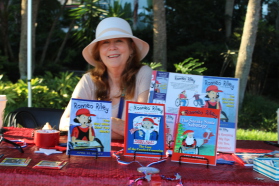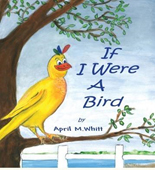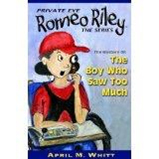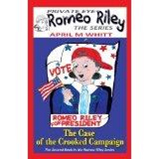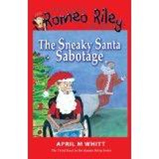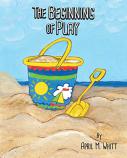
News and Reviews
Bright Feats review April Whitt, Author/Teacher
Romeo Book Series by April Whitt
Teacher, author and guest blogger, April M Whitt, takes us on her journey with ‘Romeo Riley’ and his wheelchair in her children’s literature series. There are no limits to the trouble this private eye encounters!
Whitt explains, “I’d been writing silly stories about some of my students (many of whom have CP.) The kids loved hearing the stories I made up about them. We’d also been reading a popular funny book in our class. The students enjoyed the humor—but I wondered how much they could identify with characters whose lives were so much different from theirs.”
She continues, “I began looking for funny books that had characters who had disabilities–but I didn’t find many. And I wanted the world to see that kids with disabilities are still kids who have fun and live fulfilling lives. I know my kids understand more than they can tell me. And when they laugh at the punchlines, that’s when the sun breaks through!”
by Judith Dedmon Cole
The Boy Who Saw Too Much, the first title in April Whitt's Private Eye Romeo Riley series, will surprise and delight you. Funny, inquisitive, and determined, Romeo Riley is a typical middle schooler in every way but one: Romeo was born with cerebral palsy. Nothing slows Romeo down-not his wheelchair, not his inability to speak, and certainly not other people's expectations.
On an ordinary school day, Romeo comes upon a mystery and decides in that moment to become a private eye. We follow him as he uses his insight and whatever physical abilities he has to figure out what is going on. Some of the kids in his class are in wheelchairs, some have feeding tubes, and others have learning differences. In April's able hands, these issues become traits like freckles and left-handedness-it's just how it is. There are some fantasy elements with wheelchair acrobatics that add to the humor, and will probably appeal to kids.
The Boy Who Saw Too Much can be used to help children with disabilities feel pride in one of their own overcoming obstacles and solving a mystery. It can help able-bodied children understand that kids are kids no matter how they travel down the school hallway. But best of all, the book is so enjoyable that it can be read for fun and no other reason at all.
